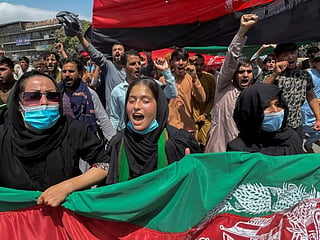All refugees deserve dignity
Failing to protect the most vulnerable and desperate is a failing of our humanity

The recent events that have unfolded in Afghanistan are only bound to increase the numbers of refugees fleeing that troubled nation, seeking refuge and a safe haven beyond its borders.
For those giving up their home, family, villages and communities, they are embarking on a life of the unknown, a tenuous existence dependent mostly on the help of others, relying on humanitarian aid and the generosity of international partners.
While the exact numbers of those leaving Afghanistan are still unclear and are likely increasing with each passing hour, what is clear is that there are more than 80 million people living today as refugees — more than the population of Germany.
That is a sobering thought indeed. But what is more frightening is the reality that far too many refugees now live a life of fear, where their worth as individuals is somehow diminished by virtue of the circumstance that forced them to leave their homes in the first instance.
In the past several days, Amnesty International has documented the cases of Syrian refugees who returned home and were subjected to detention and disappearance.
In a report titled “You’re going to your death” Amnesty documented violations against 66 returnees, including 13 children. It also cited five deaths in custody.
The timing of this report is poignant given that some Western countries such as Denmark are piling pressure on Syrian refugees to return home.
The moves are all part of a change in perspective where refugees are somehow viewed as being responsible for their plight, to blame for the miseries they have endured, to be punished and sent packing as if they are alien and unwelcome.
That is an outlook that is small-minded, uncaring, soulless and dehumanising. And it is an outlook that should not be brooked for one minute.
There is a reality that we all who share this planet must understand, a truth that differs us from the animals that roam our wilds.
We are human because we have the ability to care, empathise, act with compassion and change and improve the lives of others with our actions. And how we act against those who are the most vulnerable, the weak, the sick and the suffering should be our yardstick of humanity.
Any other outlook is uncivilised and immoral. We must act as how we would want to be treated if we were ever to be in such a vulnerable and threatened position.
Sign up for the Daily Briefing
Get the latest news and updates straight to your inbox









